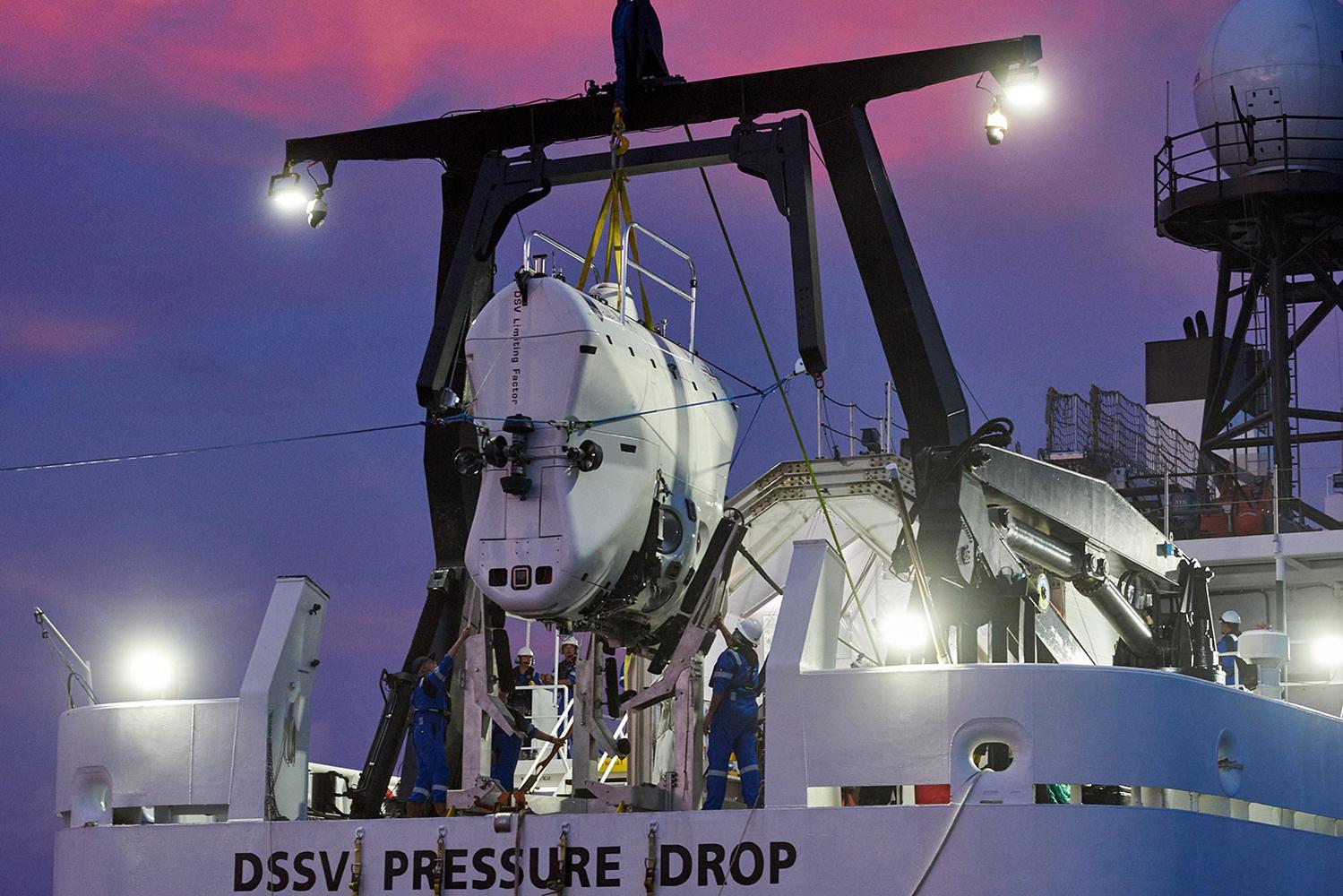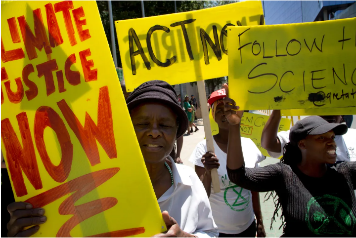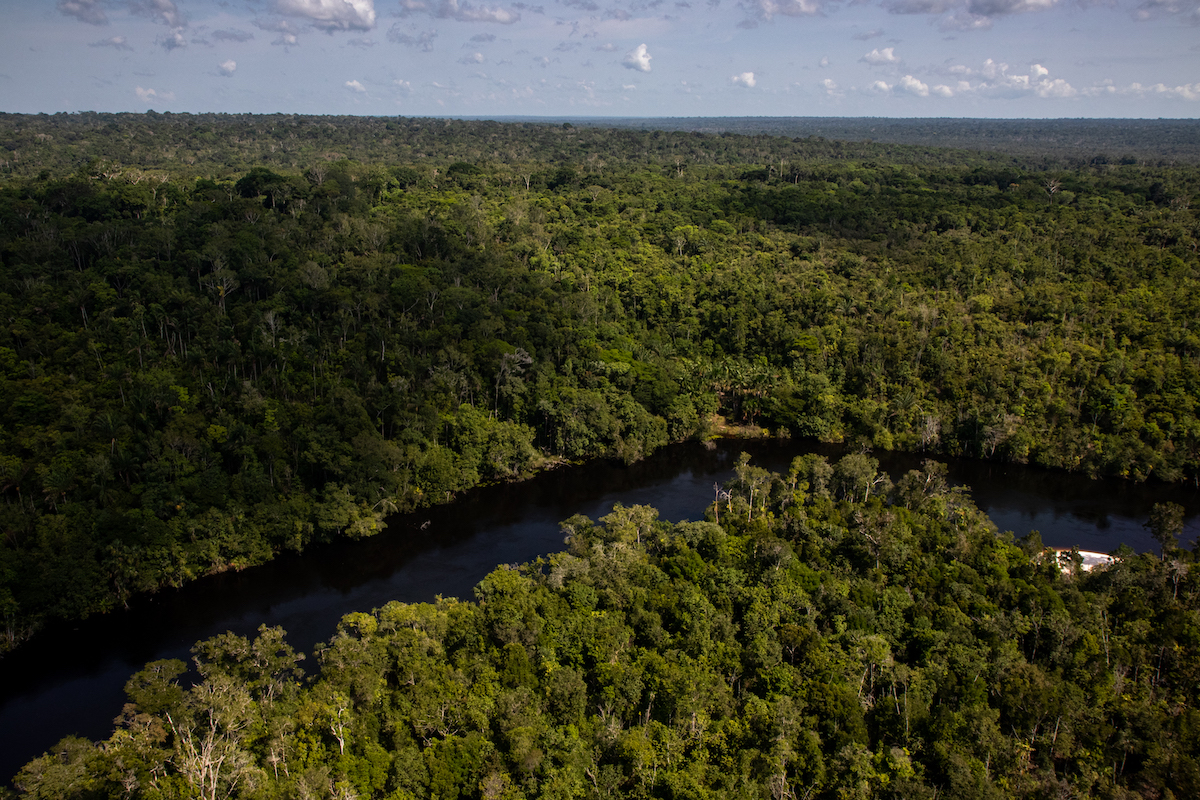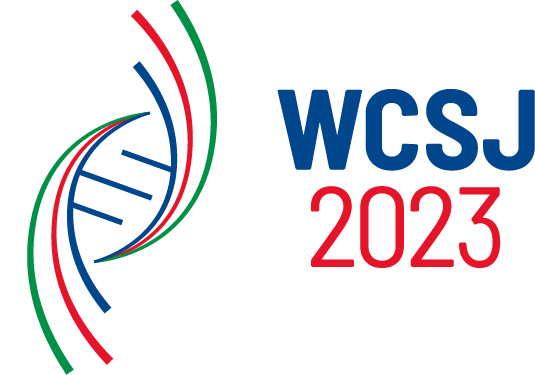Parallel sessions
Please note that these parallel sessions & panels are subject to change.
Track 1: Science immersion
Direct access to scientific sources for stories
1.1: Moving Lands: what the world can learn from Mexico, Chile, Philippines and Indian Ocean's early warning alerts systems?
While the cost of economic damage of disasters is increasing globally, the human costs are going down, due especially to the development of early warning systems that have saved a huge amount of lives in the last decades. Mexico, a country prone to seismic shocks, has an early warning system developed with local technology that sends alerts from 30 seconds up to a minute before the event, giving people time to prepare. In Medellin, Colombia, governmental institutions are working together with communities to integrate the use of Early Warning Systems in an attempt to democratize knowledge but also to make more efficient use of this technology.
Early warning systems are crucial to saving lives in a world where extreme weather events could occur globally at a rate of 1,5 per day by 2030, according to the latest forecasts.
Moderator: Patricia Luna
Speakers: Laura Vargas-Parada, Lina Ceballos, Nahuel Arenas, Gloria I. Lopez
1.2: New Digital-First Mental Health Strategies From The Global South
A panel of scientists from across the Global South will show that solutions to a global problem can come from the developing world, from using GoogleAds to get help for vulnerable people to cope with mental health problems.
Moderator: Chhatra Karki
Speakers: Sandersan (Sandy) Onie, Shiow Chin Tan
1.3: COVID-19 and vaccine development in Latin America. What have we learned?
The pandemic exposed the weakness of the scientific and health systems in Latin America. However, several countries in the region are making efforts to develop their own vaccines. Why is it important and what are the challenges facing these projects?
Moderator: Bruno Massare
Speakers: Juliana Cassataro, Erique Jose Farias Peixoto de Miranda, Liz Alvarez-Lajonchere Ponce de León
Track 2: On responsible reporting
Practical discussion of ethical challenges
2.1: Reporting on inequity in science from the Global South
 Science has a diversity problem, and it is more acute in lower and middle income countries in the Global South. What unique problems of non-inclusion exist in the Global South and how do they harm science, academia, and science journalism? Can science journalism move the needle by spotlighting these challenges to create a more diverse and equitable scientific force?
Science has a diversity problem, and it is more acute in lower and middle income countries in the Global South. What unique problems of non-inclusion exist in the Global South and how do they harm science, academia, and science journalism? Can science journalism move the needle by spotlighting these challenges to create a more diverse and equitable scientific force?
Moderator: Laura Helmuth
Speakers: Ankur Paliwal, Subhra Priyadarshini, Abdullahi Tsanni, Thereza Paiva
2.2: On a fine line: How to cover science critically when science is already under attack?
One of the roles of science journalists is to point out instances where science goes wrong. Our job is to report when a lack of transparency, ethical issues, and conflicts of interest get in the way of science-making. But how can we cover science critically in a context where science is already under attack for political reasons? Having a critical approach toward science in such contexts could fuel movements of science denialism across our countries. At the same time, we can't only be science cheerleaders.
Moderator: Maria Clara Valencia
Speakers: Theo Ruprecht, Mariana Lenharo, Nouha Belaid
2.4: Can journalists give a "jab" against misinformation?
If one wants to stop the spread of misinformation like epidemiologists do with virus infections, one solution might be as well the inoculation of vulnerable people. How can science journalists assume the role of giving this shot?
Moderator: Vera Novais
Speakers: Purple Romero, Michael Stang, Rakoen Maertens
2.5: New ways of reporting on climate change
A panel of climate-focused journalists will discuss new ways of covering climate change to encourage constructive debate, focus on solutions and communities and increase audience trust and engagement with the issue.
Moderator: Monika Weiner
Speakers: Isaac Houngnigbe, Meghie Rodrigues, Maximiliano Manzoni
Track 3: New challenges to explore
Deep-dives on how to better serve and find new audiences
3.1: The language of health journalism: reaching underserved audiences
Studies reveal people prefer consuming news in their vernacular language, but in countries like South Africa and the US, health stories are largely reported on in English. This results in inequitable access to credible health information in underserved and underrepresented populations.
Moderator: Nicolas Gutierrez
Speakers:Bibi-Aisha Wadvalla, Syed Nazakat, Syriacus Buguzi, Sashenka Hernández Estrada
3.2: Humanitarian emergency: lessons for science journalism
The discussion will focus on the role that science journalism should play in humanitarian emergencies, from the experience of journalists reporting from Kenya, Syria and Venezuela. The panel will address professional challenges, personal risks and ethical dilemmas that may arise from the practice of scientific journalism in these contexts.
Moderator: Margaret López
Speakers: Marielba Núñez, Luisa Salomón
3.3: Stories Without Borders: Working together to report on science, health and the environment in Latin America
Time flies! It's been almost four years since we launched Historias Sin Fronteras at the 2019 WCSJ in Lausanne. Join us for a lively discussion of the power of cross-border science journalism.
Moderator: Iván Carrillo
Speakers: Valeria Román, Johanna Osorio, Eduardo Franco Berton, Ximena Serrano
3.4: How do journalists go beyond communicating risk to sharing risk know-how with their communities?
Risk Know-How is about informed decision-making and journalists have a unique role to play in their communities. How can journalists and communicators help empower their communities in this process? What challenges need addressing?
Moderator: Leonor Sierra
Speakers: Jorge Rodriguez, Michele Catanzaro, Disha Shetty
3.5: Explorers of the Universe
Astronomy is one of the most exciting sciences that leads us to ask existential questions such as: Where do we come from and where are we going? Is there life in other planets? How did stars and galaxies form? We will share experiences in how to communicate astronomy to children and young people in different and attractive formats.
Moderator: Brenda Arias Martin
Speakers: Andrea Obaid, Avivah Yamani, Fatemeh Bonyadi, Santiago Vargas Domínguez
Track 4: North/South: To a new global dialogue in the 21st century
Science content and professional development with a global view
4.2: Lessons learned from COVID-19: How network journalism helped to produce scientific stories and tackle misinformation
What science journalists could offer whilst their movement is restricted during the pandemic, right when the public is in dire need of information? The session highlights the significance of journalism networking and its potential for future science reporting.
Moderator: Laura Vélez Hernández
Speakers: Saadeqa Khan, Gobinda Pokharel, Maria Bolevich, Dewi Safitri
4.3: Science Journalism as survival hope: Climate disasters coverage in South Asia
Experiences of climate disaster coverage by journalists from the South Asia and how solutions journalism has been used to empower people to adapt to increasing extreme weather catastrophes well as about alternative livelihoods in the face of climate-related changes that have destroyed teir sources of income.
Moderator: Jennie Erin Smith
Speakers: Archita Bhatta, Suhail Yusuf, Sahana Ghosh, Sisira Kumara
4.4: Science and Biopiracy of Indigenous Knowledge
From an Indigenous perspective, scientific research has often been perceived as an accomplice to the commercial exploitation of biological and genetic material, usually without compensating or acknowledging the Indigenous people from which the material and knowledge stems from. This session will introduce existing regulations of research related to indigenous biological/genetic material from an academic perspective, policy makers, and experts in biopiracy. The objective is to generate a discussion about what good collaboration practice between the Global South-North should be.
Moderator: Nicolas Gutierrez
Speakers: Lydia Ben Ytzhak, Sashenka Hernández Estrada, Maria Corazon de Ungria
Track 5: Our craft: tools of the trade
New perspectives on how to develop as professional
5.4: Writing the popular science book: Four authors tell their stories
Read any good science books lately? Ever thought of maybe writing one? This round table session with four authors of recently published books will address the challenges of planning, pitching and completing a book. Find out how they found the ways and means to succeed.
Moderator: Kathryn O'Hara
Speakers: Sarah Everts, Jennie Erin Smith, Engela Duvenage
5.6: Laughter in Science Journalism
Amused brains are more active and creative, learn eagerly and store much more information, as brain research shows. In dialogue among themselves and with the audience the hosts of this session explore new ways of light and more humorful presentation and dissemination of complex and nerdy stuff. Participants, feel welcome to bring your own examples from your workbenches, discuss and enhance them!
Speakers: Wolfgang Goede, Sofia Cabrera Espin
5.7: Scientists and journalists: two worlds, one science. Research and publication of Autism and Alzheimer
Moderator: Mun-Keat Looi
Speakers: Jennie Erin Smith, Thomas Hartung
Sponsored Sessions
United Nations Office for Disaster Risk Reduction (UNDRR)
Journalism to save lives: facing today and tomorrow’s disasters
Built on close yet independent relationships between science, journalism, at-risk communities, and experts working on framing research investigations, agendas, stories, public policy, and transparency. And how this cross-cutting effort could be key to reducing the risk and impact of disasters in a future where more disasters are expected.
Moderator: Patricia Luna
Speakers: Nahuel Arenas, María Isabel Torres, Alejandra Xanic
Alliance of Bioversity International and CIAT
Roots of Sustainability: Exploring Livestock Production and Seed Conservation
Livestock production and consumption of animal-based foods have been scrutinized for their contribution to environmental problems. However, livestock farming can contribute to mitigating global warming through technologies and innovations, while also contributing to food security and the economic well-being of thousands of livestock farmers. Many of these technologies begin with the seeds of the pastures that the animals consume. More than 20,000 varieties can be found in Future Seeds, a bank with high international standards and the only gene bank in the world with Platinum Leed v4 certification that distinguishes it as an intelligent and sustainable building. What is the importance of seed banks, what are they safeguarding, and why are they considered the genetic insurance of agriculture?
Speakers: Jacobo Arango, Marcela Santaella
Cenicafé Colombian Coffee
Science and technology for the best cup quality in the world
There is a lot of science behind a cup of Colombian Coffee. After 96 years of uninterrupted support for scientific research and technological development on coffee cultivation and processing, the National Federation of Coffee Growers of Colombia has made it possible to produce the best coffee in the world under a sustainable system that besides being friendly with the environment, considers the particular climatic conditions of the country, and the social aspects of bean production by half a million small farmers, to thrive with a recognized beverage quality by consumers everywhere. The past, present, and future of coffee will be presented, highlighting significant achievements that impact farmers' income and well-being, biodiversity and natural resources conservation, and adaptation to climate change conditions.
Speaker: Álvaro Gaitán
ScidevNet-Elsevier
“Growing research equity and representation: a dialogue with Latin American women researchers”
Three Latin American women researchers and role models will explore how they have forged a path in their scientific disciplines, overcoming barriers and working effectively with the media. All are prominent researchers in their fields and winners of the OWSD-Elsevier Foundation Award for Early-Career Women Scientists in the Developing World. The Elsevier Foundation and SciDev.net will dig deeper into the dynamics of visibility, role modelling and best practises in the dialogue between media and women researchers from developing countries.
Moderator: Rebecca Clear
Speakers: Carla Fabiana Crespo Melgar, Gabriela Montenegro-Bethancourt, Magaly Blas, Luisa Massarani
Panels
Dart Center for Journalism and Trauma
Why the youngest children should be on every science journalist's radar? [Sponsored session]
Children, while sometimes the subjects of journalistic reportages, are typically secondary or tertiary considerations or lines of inquiry. In this panel we will explore how child-centered reporting, and the lens of early childhood is – or should be – a priority for journalists on every beat, and especially science journalists.
This panel is supported by the Dart Center for Journalism and Trauma, as part of their International Early Childhood Journalism Initiative.
Moderator: Irene Caselli
Speakers: Mariana Lenharo, Alla Katsnelson, Rhitu Chatterjee
Moore Foundation
Too many stories: What one news organization is doing to broaden its impact
A nonprofit environmental science and conservation news platform, Mongabay is the world’s most popular rainforest information site, with more than six million visitors per month and publishing stories in nearly a dozen languages. To further expand the impact of its evidence-based reporting, Mongabay is exploring ways to build capacity. Learn about their plans for field collaboration with Mongabay reporters and other steps to increase the number of original stories they publish each year.
Moderator: Nicolas Gutierrez
Speakers: Maria Isabel Torres, Timothy Killeen, Rhett Butler
“Organoid intelligence”: the future of modern computing from human brain cells
Biocomputing is a huge effort to compact computational power and increase its efficiency to overcome current technological limits. Researchers at Johns Hopkins delve into this technology that may one day produce computers that are faster, more efficient and more powerful than silicon-based computing and AI.
Moderator: Wolfgang Goede
Speaker: Thomas Hartung
Relevance of science journalism as an editorial line in the media
Moderator: Nicolas Bustamante Hernandez
Speakers: Ben Deighton, Andrea Bernal, Laura Helmuth
